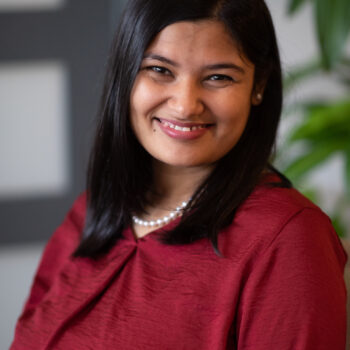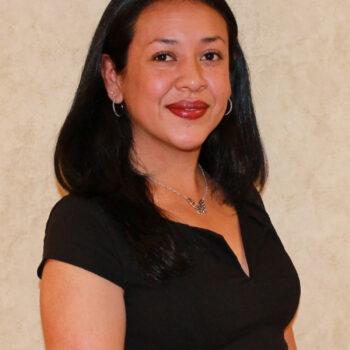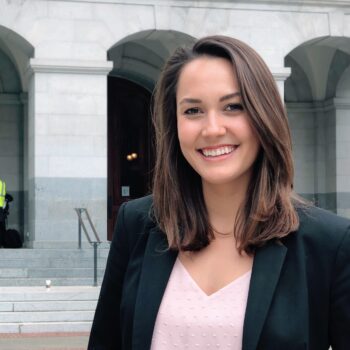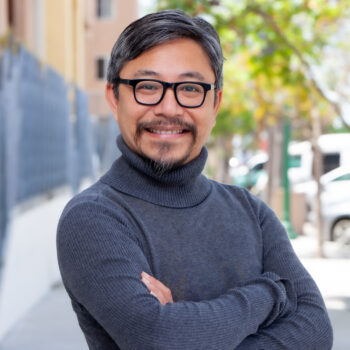The 2020 uprisings for racial justice put unprecedented attention on local budgets and the priorities they reflect. In cities across the country, the uprisings spurred new efforts to win people’s budgets and provided renewed momentum for longstanding coalitions organizing for just and equitable budgets. To take stock of where local budget fights stand in 2021, Kathryn Cai spoke to organizers across PowerSwitch Action’s national network who have been engaged in efforts to redirect public investment into community services and supports and to assert that real public safety means caring for all of a city’s residents. They share the urgent changes that need to be made to city budget processes to make them more equitable and inclusive, key challenges that our movement faces in budget campaigns, and how to enact transformational change in our cities in this moment.
What are the most urgent changes that we need to make to how municipal budgets are determined? How can the budget process be more inclusive of the communities that the budget affects?
Jung Yoon, Campaign Director, Grassroots Collaborative in Chicago, IL: In Chicago, the budget priorities are set by the Mayor and departmental committees with little to no input from residents. Even when the Lightfoot administration sought input, they swiftly ignored it. During the fight for the 2021 budget [in late 2020], the city released an online survey of residents to gather input on spending priorities. Over 37,000 people responded, and 87 percent wanted money reallocated from the police budget into other community services. However, except for a small reduction in allocation by eliminating vacancies, Mayor Lightfoot’s budget actually increased the percentage of funding going to the police department while other community services were cut drastically.
To truly shift the city’s budgeting paradigm, we must enact a participatory budgeting process similar to one outlined by our partners at Chicago United for Equity, who have been demanding a “People’s Budget” that is informed through a community-led process of identifying investments needed in the most impacted communities, designing a budget led by those community values and priorities and creating a framework for accountability for a participatory budgeting process.
Keara Piña, Researcher and Policy Advocate, Center on Policy Initiatives (CPI) in San Diego, CA: The budget process needs to be structured and timed so that community input truly matters. Right now, most budget decisions are made before official public hearings. Many San Diego residents do not know how or why they should engage in the budget process. Community input mechanisms vary by council district and leave out many community voices, and public education about the budget has primarily fallen to our coalition. The city should take responsibility for increasing community outreach and engagement both before and during the budget cycle. Engagement opportunities need to be accessible in different languages and timed to ensure working people can participate, and we would like to see community decision-making through participatory budgeting.
Also, the budget cycle is not finite; it is a never-ending process. A final budget is adopted, but many budget decisions are not followed through on or are changed throughout the year. Residents deserve to weigh in on new revenue and expenditure changes throughout the year, rather than the current narrow ways the public can participate during the official budget cycle.
What are the challenges you see in taking on budget fights?
Debolina Banerjee, Climate Justice Policy Analyst at Puget Sound Sage in Seattle, WA: There are a number of challenges to winning budget campaigns that are truly equitable. First, community capacity can be a hurdle, since low-income, BIPOC communities and working families have a lot on their plates. There is also a steep learning curve to budget campaigns — we have been fighting the city on resource allocation and learning along the way. Furthermore, when there is a change in city leadership, there can also be a change in political will. And finally, when there is an existing dynamic where individual organizations want money for their individual priorities, it can be divisive.
Liana Molina, Senior Campaign Director at the East Bay Alliance for a Sustainable Economy (EBASE), Oakland, CA: One challenge is to build strong alliances across sectors and organizations that can leverage political power to win and not be pitted against each other. The more we’re able to align and coordinate our work, the more capable we are of achieving concrete wins. This requires some capacity to convene and coordinate a broad-based coalition and implement a coalition process to forge agreements, build a platform, execute an advocacy strategy, build external pressure through public actions and media, with some research savvy to analyze the existing budget and budget proposals, identify revenues and expenses, and puzzle together how to balance things out. It also helps to have allies in elected leadership who share progressive values and are committed to working with the community to advance a people’s budget.
Another challenge is navigating the budget timeline. While much of the advocacy typically takes place in the final weeks of the process, the budget is largely shaped in the months before. Organizations and coalitions engaging in budget work should push to have their priorities as fleshed out as possible early in the process and begin advocacy while the budget is being written, rather than solely in last minute amendments. Community coalitions should strive to have agreement on their set of priorities at the onset of the budget process and should work to generate a specific list of budget line items as soon as possible.
jean-huy tran, Organizer, from the Center on Policy Initiatives (CPI) in San Diego, CA: The City of San Diego budget process is designed to maintain the status quo, and creating an equitable budget requires a drastic culture shift. We need an outcome-based budget culture where elected officials partner with the community to assess resident needs and build a budget around those needs. We need city leadership who share in community values and elevate community voices while uplifting the fact that city budget dollars belong to the people. This shift cannot happen without fundamental changes to both city leadership and the budget process itself. The City needs to shift from treating the budget as a year-by-year process to using it as a stepping stone toward a longer-term vision that centers community input and prioritizes community decision-making.
What will it actually take to win these fights?
DB: To win budget fights, we need grassroots organizing, solidarity among community-based organizations to make sure that collective priorities are lifted, and community education around the issues of the budget. Organizing should take place in a coalition that wants to reclaim power and center marginalized communities, and we need a collective organizing framework and theory of change that excites the coalition and holds it together to fight for major changes.
JY: Currently, we do not hold enough political power to win the budget we want in Chicago. But through strategic organizing, a sharp narrative framework, and a citywide political strategy to reclaim the balance of power, we can win a city budget that defunds the police, taxes the rich, and invests in Black and brown communities by 2024. We need to build a broad base of people by bringing in folks energized but unorganized while radicalizing the folks already on our side. We must move the organizations with constituencies to join us through continued polarization and political education.
Most residents are concerned about the health and safety of their communities but many do not see or focus on the role that the budget plays in creating a safe and healthy community. In order to win we have to challenge the idea that you can’t fight city hall and, at the same time, radically redefine and reimagine the conversation around safety to be much more expansive — to include issues ranging from summer jobs to lead-free water — and paint a picture that provides clear, compelling alternatives and investments in true community care to get to the root causes of violence.
We also need to build up a strong city council that does not just rubber stamp the mayor’s budget. Our strategy must set the stage to flip enough ward seats to win a majority in 2023 and elect a new mayor who will make the necessary investments in our communities. We need to create a substantive alternative political vision and grassroots pressure to force our city council and mayor to engage in participatory budgeting that drives investments to the most impacted wards.
We are part of a coalition of community organizations, faith organizations, and labor unions demanding a reimagined Chicago that invests in life affirming institutions. With the #right2recovery coalition and our partners leading the legislative strategy at United Working Families, we are fighting for divesting from policing, police surveillance, and corporate banks that extract wealth from our communities for their profit. We are demanding an equitable city budget rooted in Black liberation that funds Black futures.






